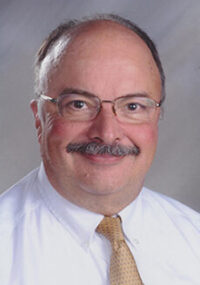Love turns the widow’s mite into might

Thirty-Second Sunday in Ordinary Time/Nov. 11
1 Kings 17:10-16; Psalm 146:7,8-9, 9-10; Hebrews 9:24-28; Mark 12:38-44
The Thirty-Second Sunday of Ordinary Time recounts the story of the widow’s mite. Considering who this woman was and what she did, we might want to call this the story of the widow’s might.
The passage begins with Jesus sternly denouncing the scribes, aka. pharisees, for their preoccupations with wealth, prestige and power borne on the backs of widows or in that society, those people who could be most easily victimized. Jesus says, “They will receive a very severe condemnation.”
So now we know what not to do and then in short order we find out what to do. Folks were bringing offerings to the Temple treasury. Some of the wealthy folks give large gifts and since everybody knows what everybody else gives, it follows that big bucks mean big prestige. Then the poor widow deposits what appears to be a meager gift worth a cent or less, no doubt judged by the bystanders as a shameful offering. The Lord corrects that view.
Jesus says to his disciples, “Amen, I say to you, this poor widow put in more than all the other contributors to the treasury. For they have all contributed from their surplus wealth, but she, from her poverty, has contributed all she had, her whole livelihood.”
TOTAL DEPENDENCE ON GOD
The message seems clear. We are called to love others, not use others. Those who use others will be severely condemned and those who love others so much that it hurts, will have treasures in heaven. This endearing story may also deliver a second message from which we might all benefit.
From our perspective today, the scribes and pharisees pretty much have targets on their backs. They’re the guys who seem to have the biggest blind spots and we like seeing them exposed. Finding the blind spots in others gives us a sense of superiority. Maybe we think seeing the blind spots in others must mean we have no blind spots. Of course, we do. We just don’t like to admit that we have our own fears and faults, presumptions and prejudices.
Perhaps death will free us from all of our blind spots, especially the ones we have concerning ourselves. Having to come to terms with who we really are may explain some of the pain of purgatory. So, what can we do to ease our transition into the Kingdom of God? The widow offering her gift models the Christian strategy for shrinking those pesky blind spots. She simply believes in the goodness of God. So strong is her belief, she gives what little she has, thus embracing her total dependence on God. Her act of charity shows us both what to do and the mindset we need to do it well.
LOOKING PAST PRETENSE
The Catechism of the Catholic Church offers a clear and concise presentation on the virtue of charity. Paragraph 1822 says, “Charity is the theological virtue by which we love God above all things for his own sake, and our neighbor as ourselves for the love of God.”
The widow has the power to look past the pomp and pretense of the scribes. Because of the great disparity in their social standing, it was a much bigger deal in her time than ours, she should have been intimidated by them. She’s not because of her single-minded love for God. That’s the widow’s might.
Defusing our blind spots begins by loving God above all things for his own sake and that is best pursued by our sincere practice of the Holy Faith. Let us attend the Holy Mass this weekend praying for a single-minded love for God and share in the widow’s might.
—
Tim Irwin teaches theology and philosophy at Notre Dame High School in Peoria. He is a member of Blessed Sacrament Parish in Morton.





